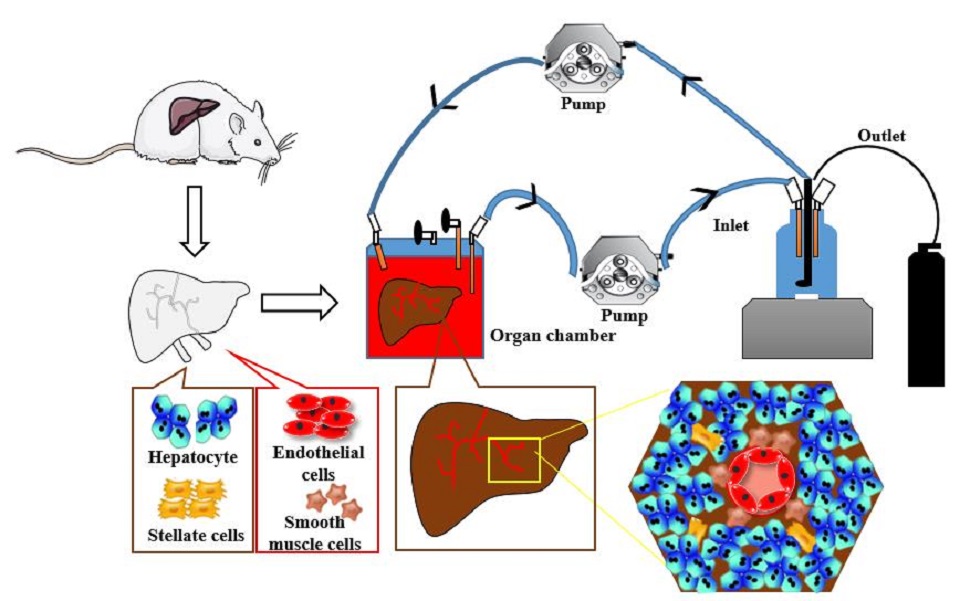A research team of Seoul National University said Wednesday that it has developed a highly efficient and functional technology for making artificial liver with vessels allow blood flow by using nucleic acid aptamer.
The research team, led by Professor Kang Kyung-sun, has successfully rebuilt the structure that maintains barrier function by coating aptamer, specifically binding to vascular endothelial cells, on the artificial liver's vascular structure.

Aptamer is single-stranded nucleic acids composed of short sequences, and it strongly binds to certain proteins.
It is also unlikely to induce transplant rejection as it does not provoke a strong immune response, increasing the success rate of artificial organ implants. Flowing human blood into the established vessels and artificial liver reduces blood coagulation and inhibits blood clot formation when connected to in vivo blood vessels. These findings proved that implanting an artificial liver could relieve symptoms.
"The highly functional artificial liver with blood vessel showed a possibility of being an adjuvant or treatment for end-stage liver diseases such as liver cirrhosis and cancer," the research team said. "Our findings will help produce and transplant artificial organs customized to patients and also improve the quality of life and extend lifespan."
Biomaterials, a globally renowned journal in biotechnology and materials engineering, published the SNU research team's study.

